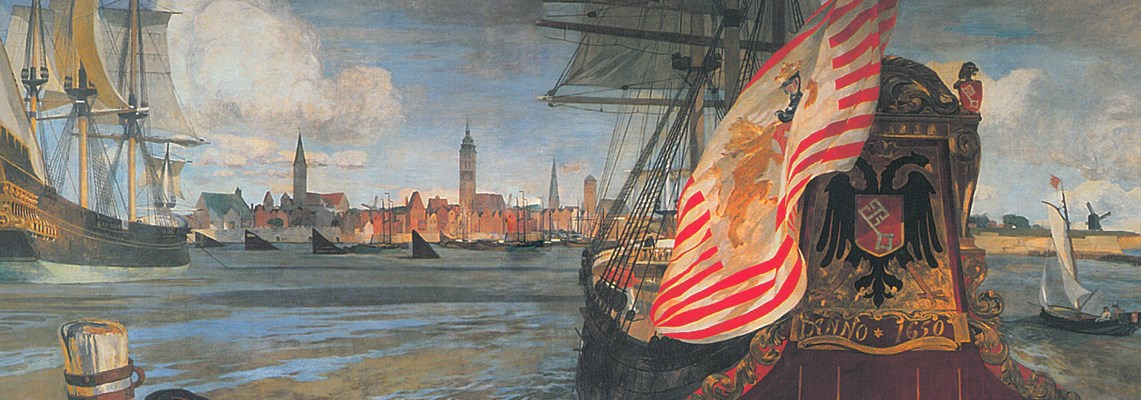The "Schaffermahlzeit"
Every year on the second Friday of February the Schaffermahlzeit takes place in the upper banqueting hall in Bremen's town hall. It has been a traditional fraternity dinner for ships' captains, ship owners, and merchants since 1545.
Originally the feast, organized by the merchants and shipowners, was served as a farewell dinner for the captains sailing again in springtime. It was an opportunity to discuss all topics concerning shipping, politics, trade and industry. Over the years the Schaffermahlzeit developed into a social event where ship's captains, merchants, and their guests and out-of-town business partners were invited. However, it does serve as the focal point for a charity that supports retired and poor seamen and their widows. It is indeed a very traditional event and very few changes have ever taken place.
Every Schaffermahlzeit has about 300 participants; there are 100 commercial members who did their duty as “Schaffer” before (explained below), 100 nautical members and about 100 external guests. An external guest, however, can only participate once in his lifetime. Each year, one guest of honour is invited - usually a public figure who is supposed to give a speech on Germany and Bremen. Guests of honour have included the German Federal President, the German Chancellor, the German Foreign Minister, Minister Presidents of Federal states in Germany, as well as several foreign politicians.
The meal is organised by three elected 'Schaffer', who not only have to organise the event, but also must pay for the complete event all by themselves. So, while it is considered a great honour to be elected as a Schaffer, the ladies/gentlemen being elected usually have to provide the financial background to fulfil this job. After having done this, they will be invited for their lifetime combined with the right to propose one external guest every year.
The Order of Courses
Being a traditional meal, it is not surprising that the courses are also highly regulated. The whole meal still reflects the festive order of menu of bygone centuries although it has been adjusted to modern standards of living during the last decades.
Courses in Order
- Chicken Soup
- Dried cod with mustard sauce and potatoes
- The main course (meat course) is brown cabbage with a local speciality 'Pinkel', salted and smoked pork, sweet chestnut and fried potatoes ³
- Seefahrtsbier ('sea-fare beer'), a dark beer brewed especially for this occasion by the local brewery Beck & Co.
- Roast veal with celery salad, prunes and steamed apples
- Riga flounder, anchovies, German sausage, ox's tongue, a collection of cheese and some fruits, just in case someone's still hungry.
- After the meal, coffee is served and clay pipes are smoked; these are manufactured especially for this event. Every hundred years there is a second fish course (Carp) served after the dried cod; the last time this happened was 1996.
Etiquette
All participants are supposed to wear a black festive evening dress (ladies) or tailcoat (men), except for captains who attend in uniform.
Wearing decorations is not technically forbidden but is frowned upon. This stems from the Hanseatic custom not to accept any decoration whatsoever. A Bremen resident does not show off, understatement is everything.
While the Schaffermahlzeit is a very festive event, it is deliberately different from eating out in a fancy restaurant. Every guest only gets one set of cutlery, one is supposed to wipe it clean with pieces of blotting paper laid out and to use it again for every course. Moreover, salt and pepper are put on the table (in small silver and gold paper bags, reminding people that salt and pepper were very expensive in the past), and it is no faux pas to actually use them.
The whole meal lasts about five hours; during its course 12 speeches are to be held by the three Schaffer, the “Verwaltenden Vorsteher” (Administrating Chairman), two captains, and the Guest of Honour.

